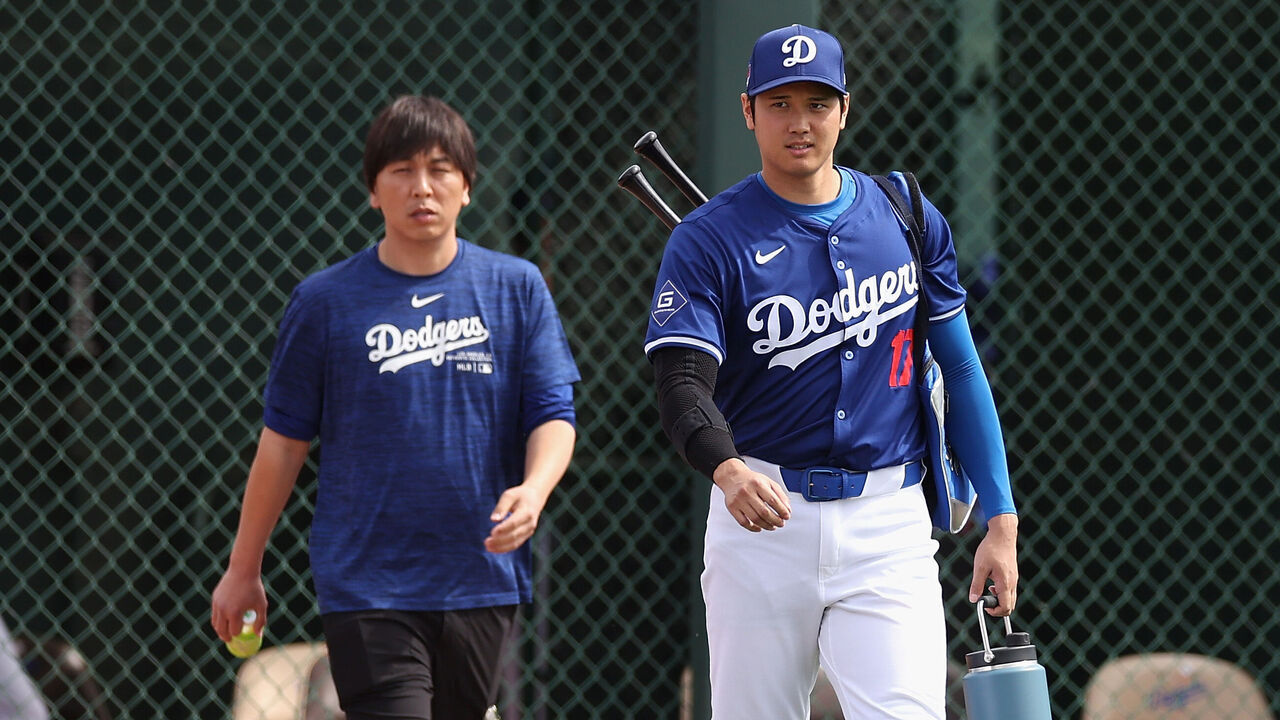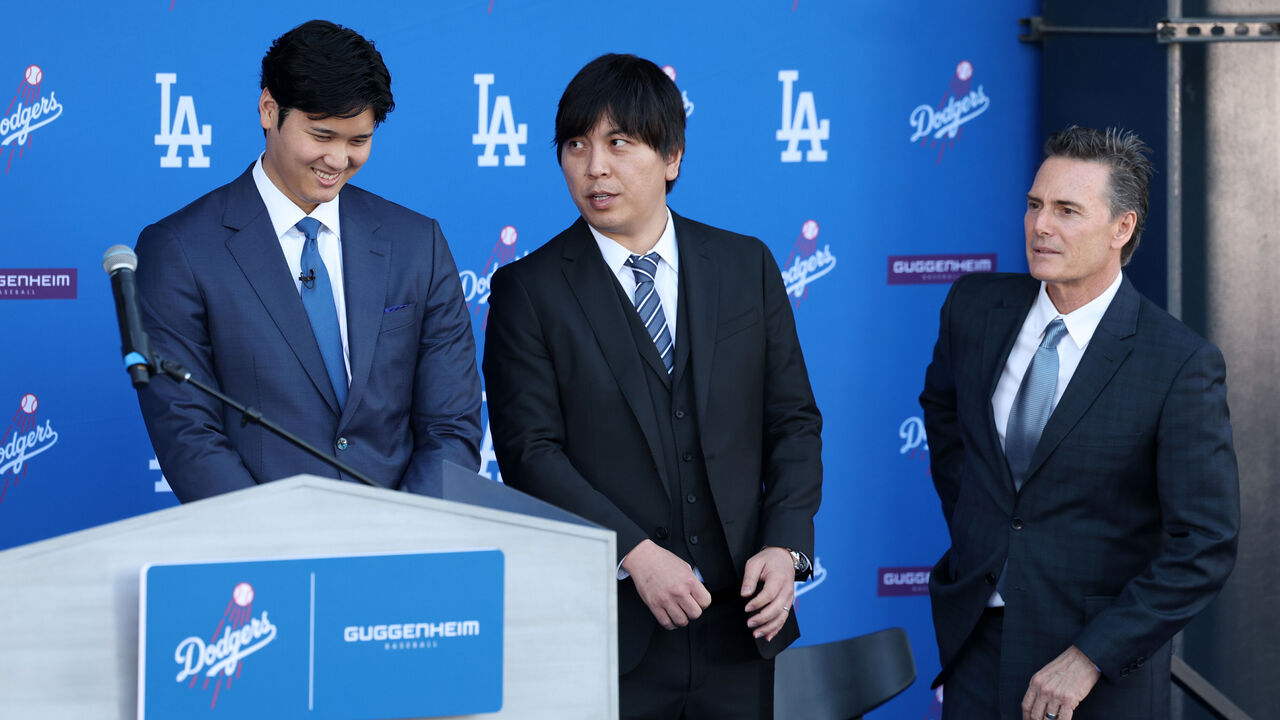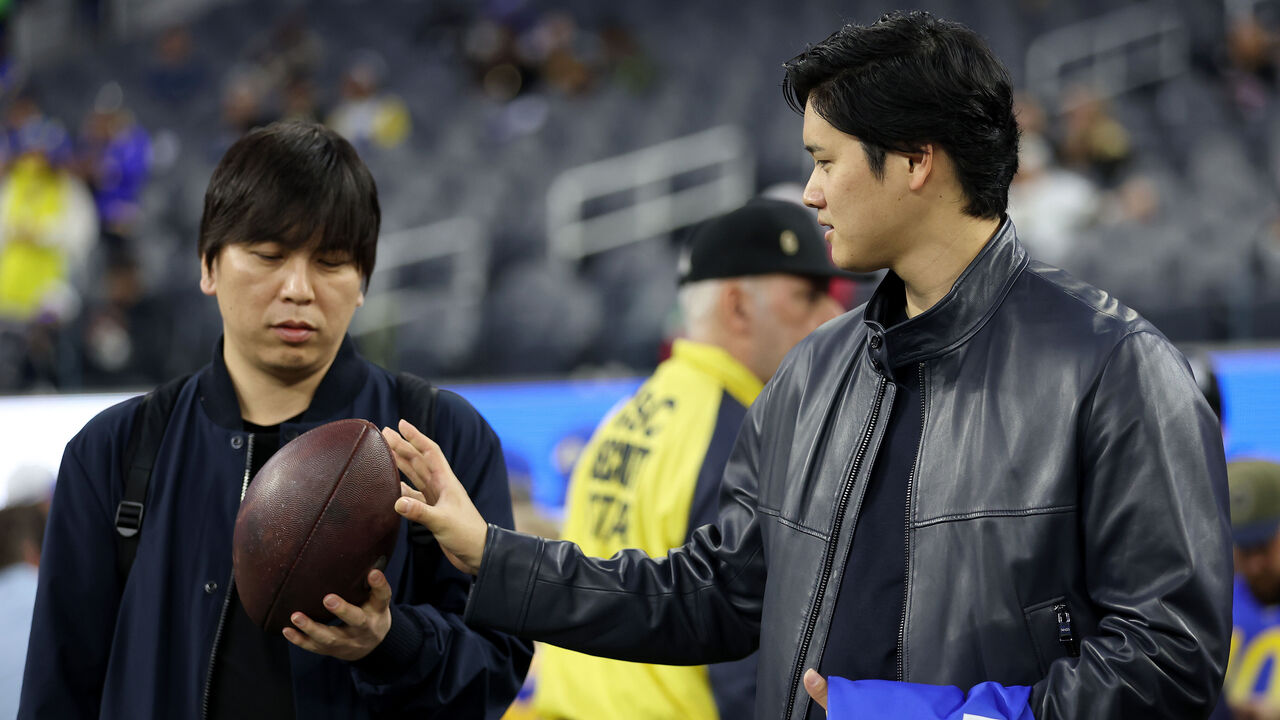How to avoid being swindled like Ohtani
Shohei Ohtani is hardly the first athlete, celebrity, or otherwise wealthy person to be swindled by someone they trusted.
A few years ago, former MLB pitcher Jake Peavy had $15 million stolen by his financial advisor, Ash Narayan, who was diverting funds from athletes' retirement accounts he managed into a personal business venture. Narayan was sentenced to three years in prison.
In 2009, a number of big leaguers unwittingly invested in a Ponzi scheme orchestrated by financier Robert Allen Stanford, who's serving a 110-year prison sentence for the $7-billion fraud. Former Yankees outfielder Johnny Damon was among those ensnared, his assets temporarily frozen.
"I can't pay bills right now," Damon said at the time.
The depth of the fraud, the details of how it was accomplished, and the mistakes along the way are often shocking. Ohtani's story is no exception.
According to the affidavit prepared by the IRS that was filed to the U.S. District Court in Los Angeles as part of the criminal complaint against Ohtani's longtime interpreter Ippei Mizuhara, Mizuhara made $180 million in wagers over a three-year period through an illegal bookmaker, accumulating $40 million in losses. He paid off $16 million of that debt from one of Ohtani's bank accounts, which he regularly accessed.
Ohtani said he had no involvement and no knowledge of Mizuhara's actions.

Mizuhara was charged with bank fraud and released on $25,000 bond last week, and is said to be negotiating a plea deal. MLB expects to quickly clear Ohtani of any wrongdoing once the federal investigation is completed, according to USA Today's Bob Nightengale.
It's an ugly story, but could it have been avoided?
What can athletes - or anyone with significant savings or investments - do to avoid a similar situation? Oakland A's pitcher Ross Stripling is someone with unusual insight into the life of professional athletes and the wealth management profession.
Stripling picks his own stocks and manages money for others as an advisor - including three major-league players. His first bit of advice when it comes to putting up guardrails: Self-education.
"We're so focused on baseball," Stripling said of players. "Our job, it's 190 days straight - plus spring training - of just grinding. And a lot of times with that kind of stuff, you put it to the wayside until the season is over, or maybe even until your career is over.
"I understand baseball is your priority, but what I would say is find time to educate yourself on it. One thing that was awesome that came out of COVID was it was like a stock-market renaissance, and, yeah, in some cases to a detriment - as far as some people doing crazy stuff with crypto and penny stocks. But a lot of people got Robinhood accounts, and kind of learned about the market, and what it entails, and how to follow it, and know where their money is. (Self-education) would be my biggest piece of advice."

According to the affidavit, Mizuhara paid his gambling debts from the bank account where Ohtani's baseball pay from the Angels was deposited. Mizuhara was with Ohtani at a branch of the bank in 2018 when the account was created.
From the affidavit:
Between November 2021 and January 2024, more than $16,000,000 was transferred via wire from a checking account belonging to Victim A, a professional baseball player, with an account number ending x5848 (the "x5848 Account"), held at a domestic financial institution ("Bank A"). These funds were transferred to bank accounts of associates of an operator of an illegal sports book ("BOOKMAKER 1").
After accounting for taxes and agent fees, Othani likely totaled around $20 million in net income from the Angels. If Mizuhara made unauthorized withdrawals of $16 million, he would have drained nearly the entire account.
While Ohtani's earned tens of millions more in endorsement deals housed in other accounts managed by his agency, CAA, losing most of his on-field pay isn't a trivial amount of cash.
What's perhaps surprising is Ohtani never checked his bank account - at least electronically - according to the affidavit. The account sat unchecked for three years after it was opened.
Approximately one month after MIZUHARA was granted access to BOOKMAKER 1's gambling website, on October 27, 2021 (the same day BOOKMAKER 2 messaged MIZUHARA that BOOKMAKER 1 wanted to settle MIZUHARA’s losses … the x5848 Account was accessed through the internet for the first time since 2018. Approximately two weeks later, between November 9-15, 2021, the x5848 Account was repeatedly accessed through the internet.
Lesson No. 2: Check your accounts.
"Have the ability to log in once a week, or a couple times a month," Stripling said. "Every platform has an activity statement or (a transaction log). You click on that and it shows you the last month: the money coming in, the money going out, what (a financial advisor) bought, what he sold.
"I think you just have to take the time to log in and track it and educate yourself. Where your money is, what it's doing, why it's there."
Is it common for an athlete to never check an account, especially one where income's deposited?
"It might be normal for (NPB and KBO) guys," Stripling said. "I played with (Hyun Jin) Ryu, and I played with (Kenta) Maeda. I don't know their banking habits, but I know their translators have access to everything, and can go pull money for them. They can sign for them on certain things. They get power of attorney for all sorts of things, I believe. That isn't super surprising that (Mizuhara) had that much power.
"As for the American guys, not looking at our Bank of America and Wells Fargo accounts? I don't think so. For instance, we just got paid a couple days ago. Everyone here is all happy. It's the first payday. Everyone knew exactly how much their pay stub was, I promise you. Guys are accessing their stuff."

What's also clear: Not enough questions were asked of - or answers received from - Mizuhara.
According to the affidavit, Mizuhara managed to circumvent Ohtani, bank officials, and financial advisors employed by Ohtani's agency.
While Ohtani's teammate Tyler Glasnow said recently on a podcast that Dodgers players "all knew early on that Ippei was doing some shady stuff," there appeared to be little pushback from CAA or Nez Balelo, Ohtani's agent, in questioning Mizuhara's excuses.
In one episode detailed in the affidavit, Ohtani was scheduled to have a meeting in October 2022 with an accountant hired by Balelo to prepare Ohtani's taxes. Only Mizuhara showed up for the meeting, claiming Ohtani was ill. The accountant, identified as K.F., questioned Mizuhara about the bank account:
K.F. asked MIZUHARA about the x5848 Account, and stated that Victim A risked filing incorrect tax returns if there was interest being generated by any funds in the x5848 Account or any gifts from that account which triggered tax reporting requirements. MIZUHARA responded that Victim A wanted the x5848 Account kept private from everyone, and that the x5848 Account did not bear interest and that there were no gifts from the x5848 Account.
The agency also didn't have its own interpreter to communicate with Ohtani, relying on Mizuhara. It was another way the reliance on Mizuhara created a single point of failure.
"Ask questions," Stripling said of advisors. "'Hey Joe - or whatever the name of your money manager is - why did you buy me 10 shares of Apple today?' It's your money, know where it is. Know how to keep it safe."
Ohtani trusted Mizuhara blindly. Peavy trusted his financial advisor. Damon trusted Stanford.
How does an athlete or anyone with wealth know who to trust?
"I would pick teammates' brains on who they use," Stripling said. "Who is one of your best buddies on the team? Who does he use? And I'd try to talk to at least one more. Same way if you're getting a quote on a plumber. Try multiple guys. See which one gives you the best sales pitch, or which one you feel most comfortable with and make a decision from there. But I would certainly say it's vital to get one."

We don't know exactly how Mizuhara's fraud case will end. The statements outlined in the affidavit haven't been tested in court, nor has Mizuhara pleaded guilty to this set of facts. Will the plea deal be finalized? Will more facts emerge? The final paragraph of the affidavit is quite the kicker:
On or about March 20, 2024, MIZUHARA messaged BOOKMAKER 1 stating, "Have you seen the reports?" BOOKMAKER 1 responded, "Yes, but that's all bullshit. Obviously you didn't steal from him. I understand it's a cover job I totally get it." MIZUHARA then responded to BOOKMAKER 1, "Technically I did steal from him. It's all over for me."
Based on what's been released so far, Ohtani lost millions of dollars to someone he trusted - as others have before. But it all could have been avoided if some simple safeguards were in place and more questions asked.
Travis Sawchik is theScore's senior baseball writer.